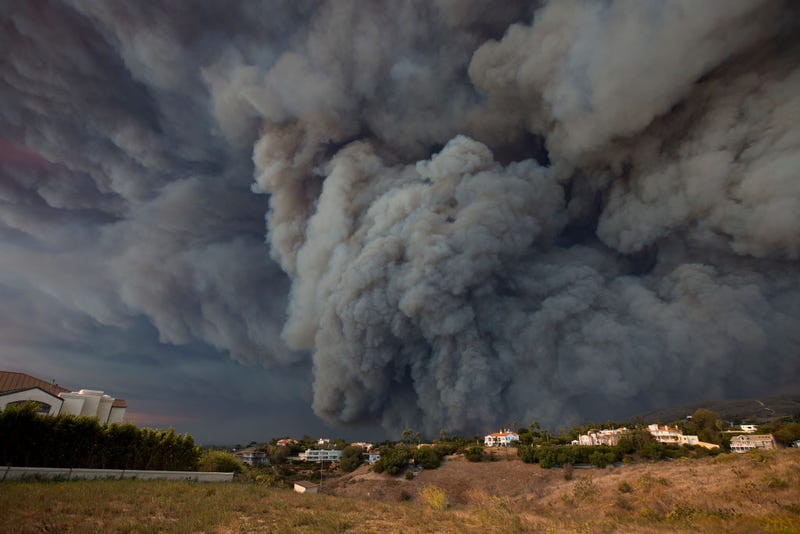
SAN FRANCISCO (KCBS RADIO) – A new study from UCLA shows that wildfire smoke is counteracting California's gains made in greenhouse gas reductions.
California has made strides to cut greenhouse gas emissions in the past two decades, boasting a 13% drop from 2003 to 2019. However, the 2020 wildfire season nearly wiped out those 18 years of climate progress, according to the new study.
"We estimate that California's wildfire carbon dioxide equivalent (CO2e) emissions from 2020 are approximately two times higher than California's total greenhouse gas (GHG) emission reductions since 2003," authors of the study revealed.
"Parts of California, Oregon and Washington, we see strong reversals of these decades of air quality improvement," Marshall Burke, Stanford wildfire researcher, told KCBS Radio. "These reversals are happening in just a few years."
Moving forward, the state needs to take a hard look at forest management strategies, as Californians' health is at stake.
"We've seen dramatic increases in particulate matter concentrations, starting back in 2017 with the number of fires that we have locally," warned Michael Flag with the Bay Area Air Quality District.
It's a vicious cycle — wildfire smoke and greenhouse gasses accelerate climate change, which then, because it's hotter and drier, makes wildfires more ferocious and frequent.
Even though some wildfires are part of the natural cycle, the UCLA study suggests that modern wildfires are more destructive due to years of deferred forest management.
Follow KNX News 97.1 FM
Twitter | Facebook | Instagram | TikTok


